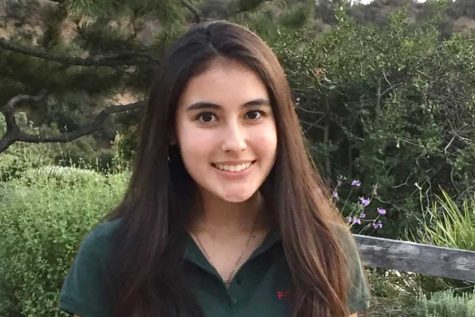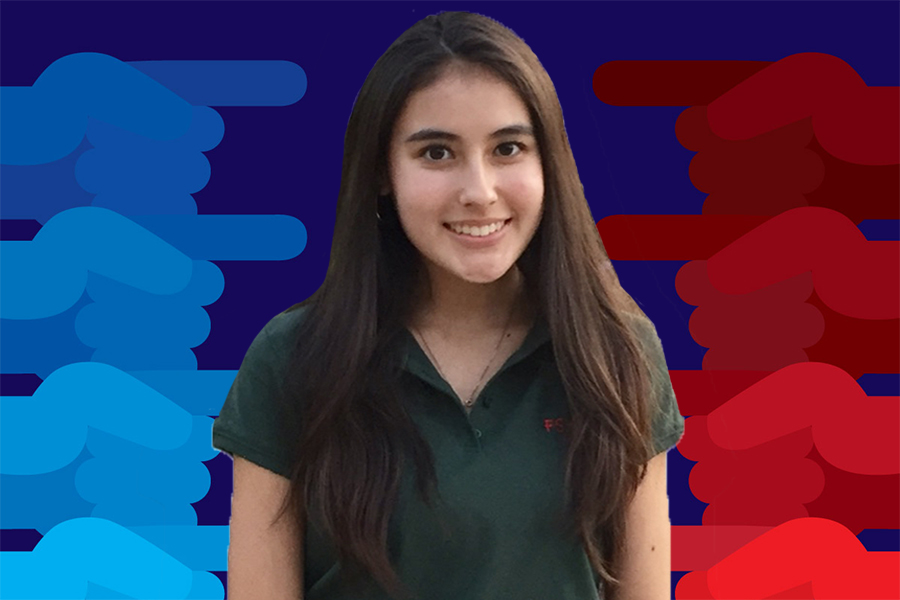Through the eyes of a moderate: The effect of social media on political polarization
According to a 2017 Gallup poll, even blue California is more moderate than it is liberal, with 37% of Californians identifying as moderate, 30% as liberal and 27% as conservative.
Ting-a-ling. You wake up to the sound of a notification from one of the funniest yet most dreaded apps on your phone: Twitter. You pick up your phone off its charger, roll to the other side of your bed and immediately start scrolling through the abundance of tweets, memes and advertisements that are compiled on your feed.
Barack Obama, Kanye West, Donald Trump and so many others make up the vast array of tweets being catered to you based on your preferences. You roll your eyes when you read the latest from Kanye: “God is so good. Today I am voting for the first time in my life for the President of the United States, and it’s for someone I truly trust…me.”.
You heave a heavy sigh when you come upon what feels like the gazillionth tweet from Donald Trump about the election results. This slight exasperation causes you to switch to Instagram, and you begin scrolling through your feed on that platform. You begin walking to your bathroom, still scrolling, and are bombarded with a plethora of “if you don’t support Black Lives Matter, you are a RACIST” and “Dump Trump,” and you wish all the chatter would just go away.
I consider myself a center-right moderate, or, in layman’s terms, a moderate Republican. I am most definitely pro-choice and believe that climate change is a serious issue, but I also pride myself on having some more conservative opinions like wanting lower taxes and prioritizing a capitalistic approach to the economy.
These beliefs have developed from my parents’ beliefs along with my own personal exposure to the bigger world. After working as a crew member at McDonald’s this past summer, I acquired more insight into the importance of being responsible with my money, and I gained a lot of sympathy for my coworkers whose livelihoods’ were dependent on the number of hours they received at work. One of my managers in particular told me that he worked at McDonald’s during the day from 8 a.m. to 5 p.m. and went straight to his second job to work from 6 p.m. to well past midnight. I can’t imagine having to work that much just to support myself and my family. His story motivated me to work toward receiving a higher education that will enable me to get a good job that can support my family and me, and his story made me see how important it is to live in a country that values economic growth and creating as many good jobs as possible.
Because I am a bit more conservative than most of my peers, not only do I rarely share my political beliefs with others, but I also rarely see them being portrayed on social media. So, instead of spending time on platforms like Instagram or Twitter where I am constantly bombarded with politics, I have stuck to sites like Pinterest, where political conversations rarely take place.
Social media sites tend to give users with partisan beliefs more traction, leaving the voices of moderates drowned out. People who share their opinions on social media have such opposing political beliefs that it makes it seem like no one is in the middle. You can’t be a true Democrat if you don’t believe in the Green New Deal and healthcare for all, and you can’t be a true Republican if you aren’t pro-life and pro-gun.
On social media, users see content designed specifically for them. When a person in Omaha googles “climate change,” she sees something different than what a person in Boston might see. “Filter bubbles” are situations in which an internet user is only exposed to ideas that further reinforce their own beliefs and lead users to believe that their view is supremely correct. Because of this, people have different conceptions of the truth. A study published by researchers at Duke University discovered that, because of filter bubbles, social media users are not accustomed to seeing opposing views and therefore react strongly when they do see opposing views.
The result is that social media encourages users to take polarized views, and there seems to be little to no room for moderates to have a voice online. Social media users on both sides of the political divide have a tendency to search for ideas and opinions that agree with their own, which further reinforces their own beliefs and makes it seem as if they are right.
A study published in Social Psychological and Personality Science, an academic journal, revealed that both liberals and conservatives are intolerant of opposing views. Mark Brandt, an American-trained psychologist from Tilburg University in the Netherlands, found in this study that “liberals were as discriminatory toward conservative groups as conservatives were toward liberal groups.”
As a moderate, I rarely see views that align with my own in social media. The middle ground between either ends of the spectrum is incredibly difficult to find even though 35% of adults in the US identify as moderate. But why is this? While social media is a wonderful outlet for sharing ideas and information, it has been designed by large tech companies to fit their agenda in ways that amplify polarization.
In “The Social Dilemma,” a Netflix docudrama released in 2020, former executives from large tech companies like Facebook and Twitter explain how social media algorithms predict users’ future actions and allow the platforms to provide content that will hold their users’ attention in order to maximize advertising profits, thus leading to a multitude of highly addicted users. The manipulative psychology behind the interface of these various platforms is what leads users to become more and more reliant on the instant gratification from social media. Unfortunately, partisan content is extremely effective at generating attention on social media, which means that political posts with moderate points of view are less likely to gain traction.
With each major headline and news story, I can only hope that our country will mend its ways and pull itself out of this state of polarization. That must begin with social media companies altering their algorithms. Social media companies want their users to be addicted to their platforms. Highly addicted users bring in more profit to social media companies, which makes these users a valuable asset. However, if social media has the power to bring people together from all over the country and world, it should have the power to find a way to bring moderate content onto their platforms, allowing everyone, not just partisan users, to have a voice.
America hasn’t been this divided since the Civil War. Moderation is the key to healthy living, and as of right now, America is not at its healthiest. I hope that our nation can bounce back from this divided state of mind and become a moderate nation, a nation where we work together to overcome national issues that affect both parties, such as Covid-19 and the federal budget deficit. That is the America that I want to see.

Carisa Joyner joined the Veritas Shield junior year as a staff writer and is now the social media editor. Aside from writing articles relating to her life,...

